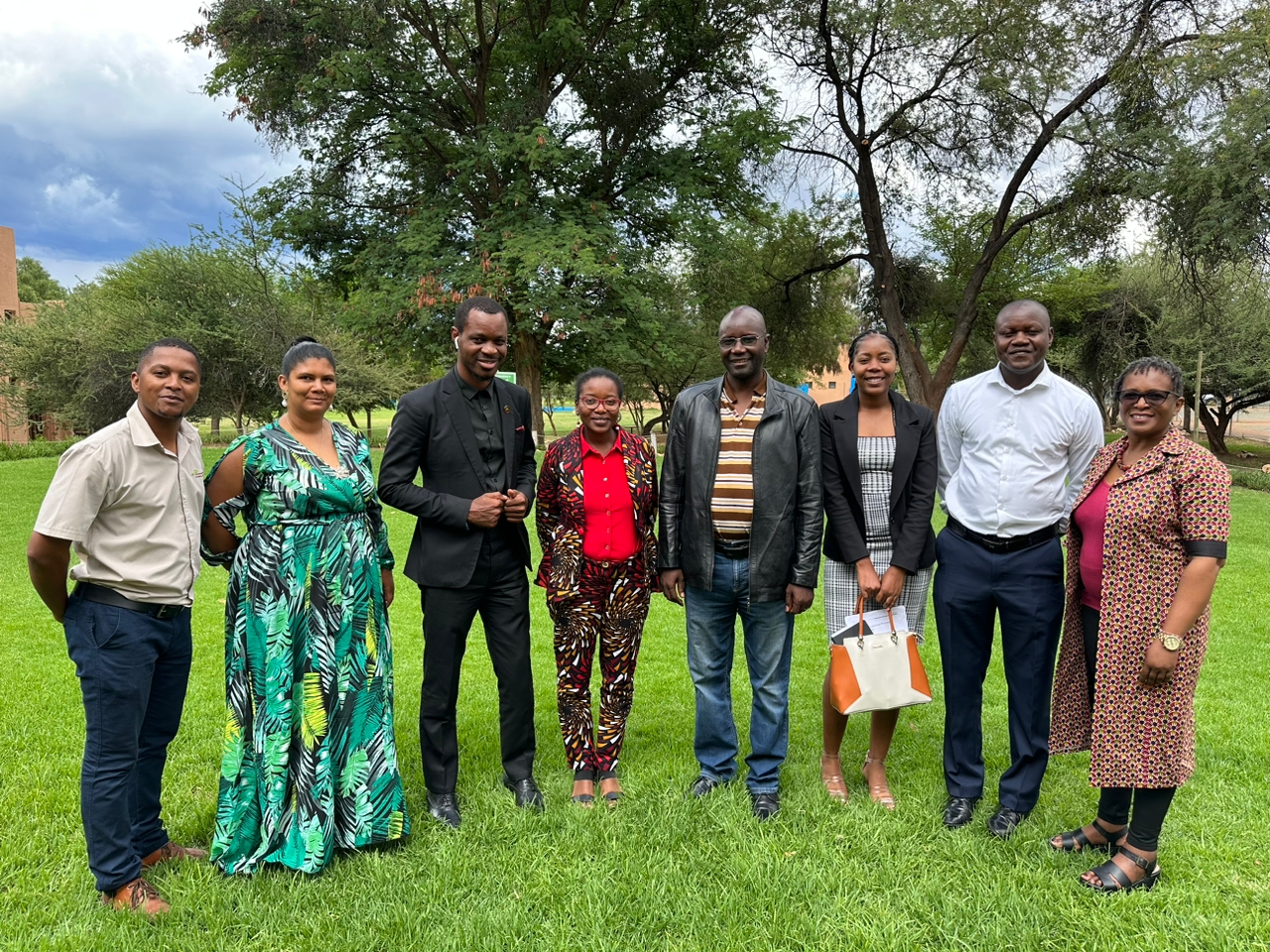
18 January 2023
Windhoek Country Club
The signing of the Accreditation Master Agreement (AMA) with the GCF in Songdo, South Korea on the 15th of September 2022 between the Green Climate Fund (GCF) and the Environmental Environment Investment Fund of Namibia (EIF)- officially signalled the pursuance of the EIF’s programming pipeline.
The EIF by virtue of its’ mandate has been set up by an Act of Parliament to mobilise resources and the Funds vision is to be a recognised leader in the development of and application of innovative financing mechanisms to support environmentally and climate resilient development pathways in Namibia; and on the 18th of January 2023, consultations commenced with key stakeholders on the first project on the EIF pipeline to be submitted to the GCF. Through this project the EIF intends to establish a sustainable financing facility that supports value chains and market penetration of agricultural production to enhance long term adaptation capacities within the peri-urban environments. This sustainable financing facility will be key in creating jobs, upskilling workers, expanding service provision in areas underserved by the government, and increasing the tax base to fund important social and economic development objectives. The objective is to create a blended financing facility in a form of green guarantee scheme under this project will be used to de-risk the EIF Green Credit Line and attract an additional investments through leveraging from private sector and capital recycling.
Climate change and climate variability is one of the key drivers of immigration in Namibia. Urban households in Namibia are increasingly finding it difficult to generate income from subsistence agriculture. This is because climate change impacts, notably degraded lands, water scarcity, and rainfall variability, keep subsistence agricultural production very low, with little chance of having surpluses that could be marketed. As a result, most people in rural areas resort to moving to urban areas in search of livelihood opportunities. Most of the migrants from rural areas and small towns usually settle in informal settlements in urban areas. This results in the proliferation of urban shacks, one of the most prominent phenomena of the growth of major towns and cities, and potentially one of the most pressing future challenges of cities and towns in Namibia. Climate change is considered a key driver of rural-urban migration in Namibia. This project is strongly aligned and seeks to scale up the successes from the recently funded project by the government of Japan titled Strengthening Namibia food systems to recover from emergencies and disease-related shocks through Building Back Better (BBB) that managed to reach up to 399 beneficiaries across 4 regions in Namibia as highlighted by the United Nations Development Programme publication on Namibia – Strengthening food systems to recover from emergencies and disease-related shocks through the Build Back Better programme (UNDP, 2021), of which EIF was an implementing partner responsible for the grants management. This project immediately responded to the emerging need of food security while strengthening the resilience of respective communities to respond climatic shocks. The interventions proposed by this project are intended to generate alternative income streams to complement subsistence agriculture through the inclusion of enterprise business solutions and value addition components, which ultimately enhance their resilience to climate shocks. The project interventions will target those local authorities that have been identified to have constituencies with very low to low adaptive capacities.
In 2020, key stakeholders were consulted during the scoping process and recommended to the EIF the formation of a Technical Working Group to be comprised of the EIF, the National Designated Authority (NDA) which is the Ministry of Environment, Forestry and Tourism (MEFT), the Association of Local Authorities in Namibia (ALAN), the Namibia Association of Local Authorities Offices (NALAO), the Ministry of Agriculture, Water and Land Reform (MAWLR), the Ministry of Urban and Rural Development (MURD) and the UN organisations (UNDP and WPF) and this group convened on the 18th of January, to discuss the proposed proposal in more detail whilst also addressing the comments received from the GCF.
To expediate this process, the EIF has commenced with plans to recruit a technical expert to further develop this proposal which is intended for submission to GCF by March 2023.

